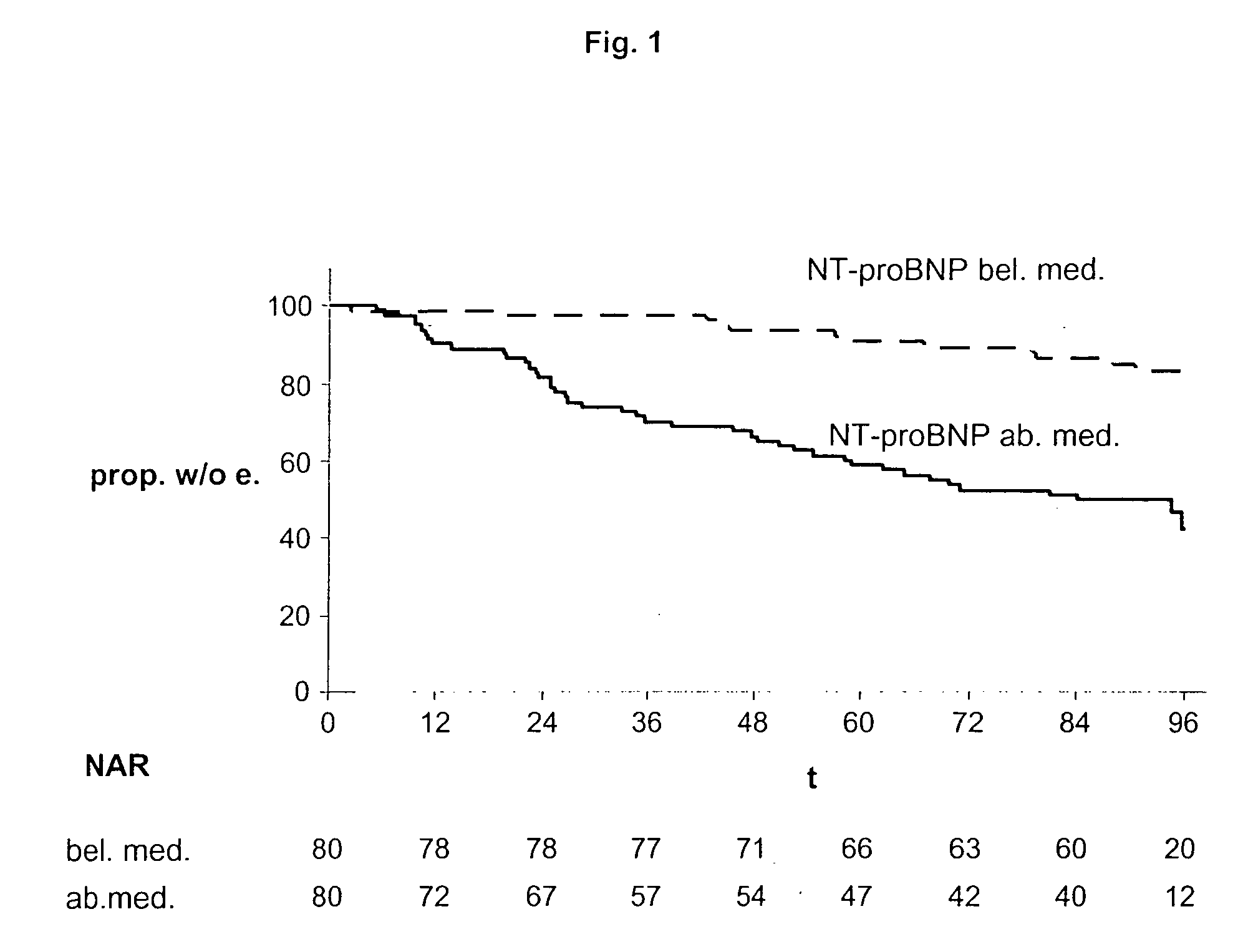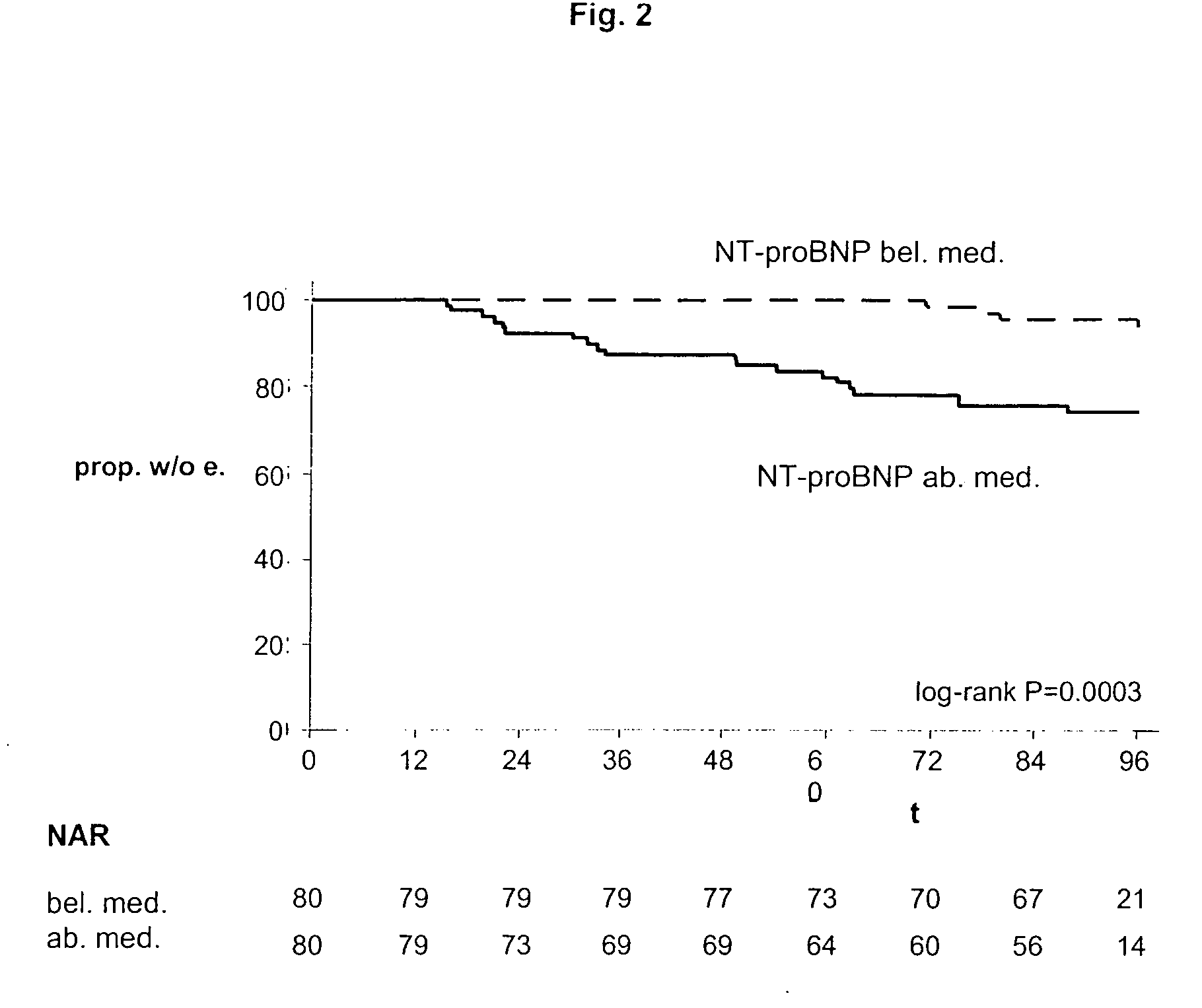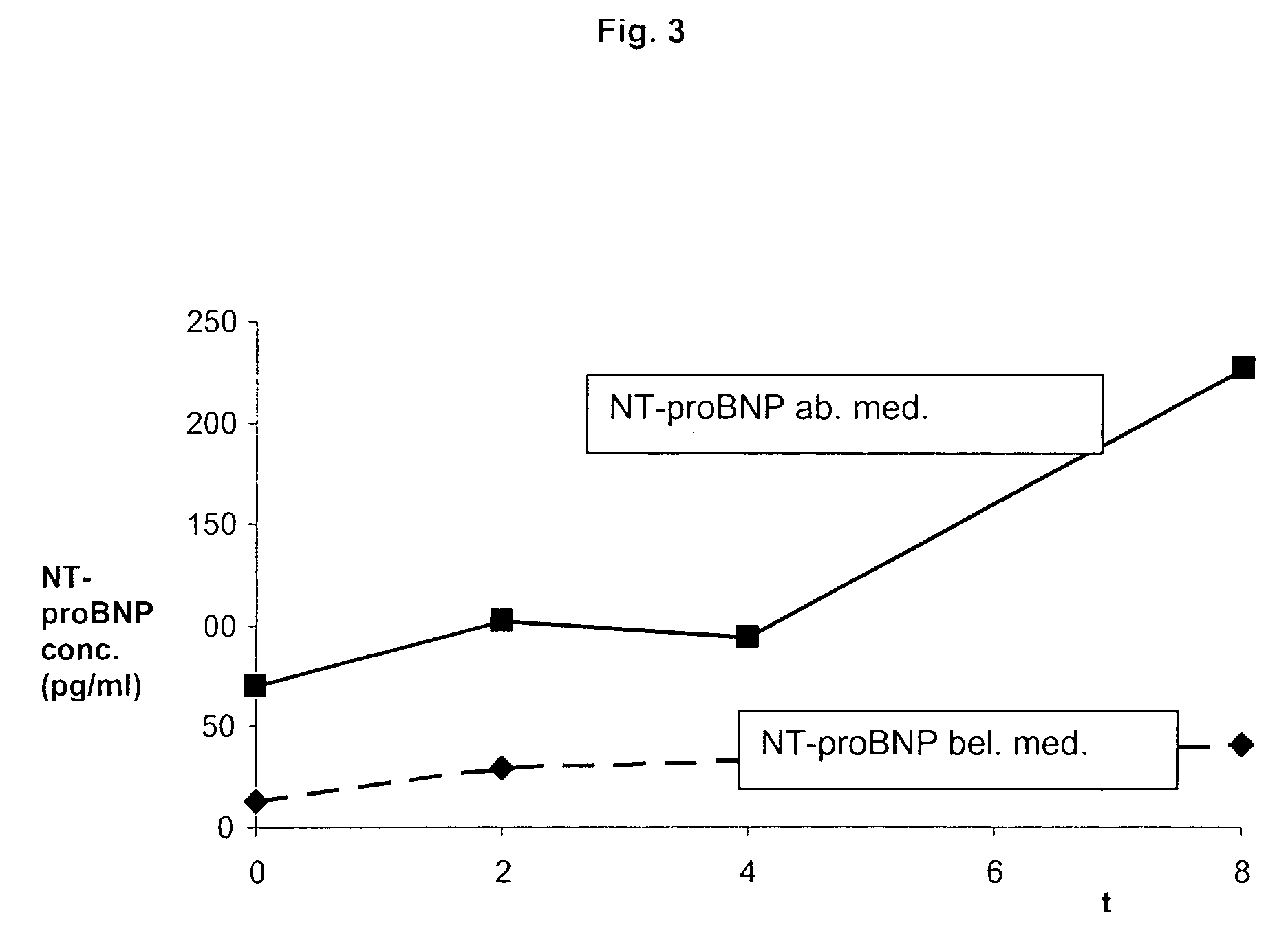Multimarker panel for diabetes type 1 and 2
a multi-marker panel and diabetes technology, applied in the direction of disease diagnosis, biological material analysis, instruments, etc., can solve the problems of disturbance of the level of potential biochemical or molecular markers, disturbance of many body functions, and insufficient current diagnostic tools for these purposes
- Summary
- Abstract
- Description
- Claims
- Application Information
AI Technical Summary
Benefits of technology
Problems solved by technology
Method used
Image
Examples
example 1
Study Design
[0158] The study design and main results of the Steno-2 study have previously been reported in detail (æGede, P., Vedel, P., Larsen, N. et al., 2003, “Multifactorial intervention and cardiovascular disease in patients with Type 2 diabetes”, New England Journal of Medicine, vol. 348 (5), pp. 383-93). In brief, 160 microalbuminuric Type 2 diabetic patients were randomized to conventional (n=80) or intensified multifactorial treatment targeting several concomitant risk factors. Patients in the intensive therapy group were treated with a stepwise introduction of lifestyle and pharmacologic interventions intended to maintain glycosylated hemoglobin values below 6.5%, blood pressure below 130 / 80 mm Hg, fasting serum total cholesterol levels below 175 mg / dl, and fasting serum triglyceride levels below 150 mg / dl. Recommended lifestyle interventions included reduced intake of dietary fat, regular participation in light or moderate exercise, and cessation of smoking. All partici...
example 2
Patients and Study Design
[0177] During 1993, all Type 1 diabetic patients with diabetic nephropathy (n=242) attending the outpatient clinic at Steno Diabetes Center, in whom glomerular filtration rate had been measured during the same year, were invited to participate in a case-control study (Tarnow, L., Cambien, F., et al., 1995, “Insertion / deletion polymorphism in the angiotensin-I-converting enzyme gene is associated with coronary heart disease in IDDM patients with diabetic nephropathy”, Diabetologica, vol. 38, pp. 798-803). A total of 199 patients fulfilling the clinical criteria for diabetic nephropathy (persistent macroalbuminuria (>300 mg / 24 h) in at least two out of three consecutive 24-hour urine collections, in the presence of diabetic retinopathy and the absence of other kidney or urinary tract disease (Parving H-H, Østerby R, Ritz E., “Diabetic nephropathy”, in Brenner B M, ed., The Kidney, pp. 1777-818, Philadelphia, WB Saunders, 2003) were recruited. A group of 192 ...
example 3
[0198] In diabetes Type 1 patients with nephropathy, PIGF was found not to be correlated with age, sex, HbA1c, and glomerular filtration rate. Correlation with urinary albumin excretion was weak. In diabetes Type 1 patients with nephropathy, PIGF was correlated with mortality from any cause and mortality from cardiovascular disease (FIGS. 6 and 7).
PUM
| Property | Measurement | Unit |
|---|---|---|
| concentration | aaaaa | aaaaa |
| blood volume | aaaaa | aaaaa |
| concentrations | aaaaa | aaaaa |
Abstract
Description
Claims
Application Information
 Login to View More
Login to View More - R&D
- Intellectual Property
- Life Sciences
- Materials
- Tech Scout
- Unparalleled Data Quality
- Higher Quality Content
- 60% Fewer Hallucinations
Browse by: Latest US Patents, China's latest patents, Technical Efficacy Thesaurus, Application Domain, Technology Topic, Popular Technical Reports.
© 2025 PatSnap. All rights reserved.Legal|Privacy policy|Modern Slavery Act Transparency Statement|Sitemap|About US| Contact US: help@patsnap.com



